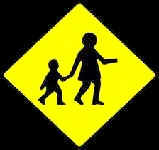| |
Happiness
and How to find it.
This page is
dedicated to the undying human quest for Happiness
Foreword: This page is not comprehensive.
There is a link at the bottom of the page with more information on the quest for
happiness. I report on several articles that have been published on the
topic of happiness. I give my commentary on each article.
| Table of Contents:
1. Article: "Religion Brings Greater
Happiness" (and my comments on said article)
2. Article: "Secret of Finding Happiness
Explained" (and my comments on said article)
3. Link to the TRUE way to find happiness (at bottom)
|
|
Foreword to the article
|
|
Foreword to "Religion Brings Greater
Happiness"
(by me, Leon)
The Title of the Article misleads the reader and is
grossly irresponsible. It is not religion that brings greater happiness... read on... and find out what
it is that brings greater happiness.
Note: the entire article does not appear here, only an
excerpt of it. I would link to the original article (and I did),
but it is gone now. It was published on WebMD's website.
|
|
The genuine article
|
|
Relgion Brings Greater Happiness
By Jeanie Lerche Davis
WebMD Medical News Reviewed By Charlotte Grayson, MD
on Thursday, December 11, 2003
Joseph's study seeks a recipe for happiness, looking beyond religious faith, which other studies have shown is one ingredient. He looks at self-actualization and purpose in life, too.
His study appears in this month's issue of the journal Mental Health, Religion & Culture.
Meaning => Happiness
In it, Joseph publishes information gleaned from 101 undergraduate students between ages 18 and 49. Each completed surveys that measured their attitudes toward Christianity, whether they felt a purpose in life, and if they had made strides toward that goal.
Those scoring high in religious beliefs -- who went to church regularly, had a strong religious faith, and prayed often -- also scored high in happiness and purpose in life.
"We're not saying that all religious people are happier than non-religious people," Joseph tells WebMD.
"It's just that, on average, religious people tend to be happier because they have a greater sense of purpose in
life."
Actually, a spiritual path outside of organized religion works in the pursuit of happiness, too. "Religion is only one path to sense of purpose," he says.
**********
SOURCES: Joseph, S. Mental Health, Religion, & Culture; vol 2: pp 117-120. Stephen Joseph, PhD, University of Warwick, England. James H. Bray, PhD, associate professor of family and community medicine, Baylor College of Medicine, Houston.
© 2003 WebMD Inc. All rights reserved.
|
|
Commentary (on previous
article)
|
|
Comments on the above article (by me, Leon)
I used to be in a religion, went to church every Sunday, had a
definite sense of purpose, but was I happy? No, not really. However, had
someone outside the religion asked me if I were happy, I'd have
answered, "Yes", because we were supposed to be happy.
We were told by our elders that we were happy, because we had a stronger
sense of purpose than others. We weren't brainwashed, but we were
led to
believe that we were happy, even though many of us weren't. That's the
problem with research based upon surveys. People sometimes
prevaricate (even though there is anonymity, AND although they may not
lie intentionally). I never found true happiness from
religion. I was always waiting for happiness to come, but it never
came.
I agree that having a sense of purpose might increase happiness to a
certain extent, but it won't bring the true, lasting happiness in and of
itself. I know a lot of people who have religion, but aren't truly
happy. Why not? They have religion. They have
meaning. But, it is not enough to make them happy. We must
explore the reason for this, but first we've got one more article to
look at.
|
|
Foreword
|
|
Foreword to "Secret of Finding Happiness Explained"
(Foreword by Leon)
The Secret of Finding Happiness is no secret. The ancient sages
have already told us how to find happiness. The problem is few
people actually understand the message. Since very few people
understand the message, it seems like a secret. This article,
however, does little to unveil the seemly cryptic way to
happiness. You'll see what I mean... read on.
Note: the entire article does not appear here, only an excerpt of
it. I would link to the original article (and I did), but it is
gone now. It was published on WedMD's website.
|
|
The genuine article
|
|
Secret of Finding Happiness Explained
By Jennifer Warner
WebMD Medical News Reviewed By Brunilda Nazario, MD
on Monday, August 25, 2003
New research provides evidence to support the old adage, "You can't buy happiness." It suggests that people will find happiness by focusing more on family life and health issues and less on career and financial pursuits.
Happiness Explained
Researcher Richard Easterlin, an economist at the University of California, argues that a new approach to finding happiness is needed that combines the two prevailing theories of happiness in psychology and economics.
...the psychological view of happiness:
| each individual is born with their own setpoint for happiness that's determined by personality and genetics. Life events, such as marriage, loss of a job, and serious injury or disease, can temporarily raise or lower a person's level of happiness above or below this predetermined level, but they will eventually return to the original level. |
...the economic "more is better" view of happiness:
| life circumstances and the growth of income have lasting effects on happiness. |
...Easterlin's view of happiness:
| a reallocation of time in favor of family life and health would, on average, increase individual
happiness. |
**********
SOURCE: Proceedings of the National Academy of Sciences, Aug. 25, 2003.
© 2003 WebMD Inc. All rights reserved.
|
|
Commentary (on
previous article)
|
|
Comments on the above article (by me, Leon)
Easterlin (if you read the whole article) does well in explaining why
the psychological & economic views don't work. He does NOT say why
his view does work. This is what I want to know... why does
focusing on family and health make one happier, if it does in deed do
so?
The problems with research, like the one above, is that there are so
many possible interpretations of the research. There are a
plethora of variables which may have contributed to the results of the
research.
Maybe, just maybe, finding happiness in family/health came first, by
chance, BEFORE the actual focus on such things. Maybe focusing on
family/health matters is secondary to finding happiness. What I
mean is: happiness found them, rather than they finding happiness.
Maybe
those people who found more happiness from family/health did so, because
they followed the ancient wisdom.
I'd bet my last quarter that not all those who focus on family and
health matters, find happiness therein (I certainly didn't). In fact, some people don't
want families, because they do not find the notion of having one a happy
notion. (I wanted a family so badly it hurt. Yet, when I
finally got one, it turned out to be only painful, and extremely painful
at that).
Easterlin is grasping. He hasn't hit the nail on the
head yet. Happiness is not to be found in any particular exterior
thing, because everyone is different, and everyone has different likes,
wants, desires. For one person, chocolate chip ice cream might
make him/her happy (temporarily), and for another cookies 'n cream. Thus, some
people may find happiness in focusing on family and others might not.
There is another aspect that Easterlin is missing.
|
Why is it so hard for people to find happiness?
See my essay on "The Road to Happiness" on
HOW to TRULY find HAPPINESS.
It explains the ancient wisdom on how to
experience true, lasting happiness.
| |

English |
|

Spanish
|

Korean |

Mongolian |

Chinese |
|

Parents of
Homeschool
|
|

Halloween
|
|

Thanksgiving
|
|

Winter Solstice
|
|

Christmas
|
|

New Years
|
|

Chinese Lunar
New Year
|
|

Valentine's
|
|

|
|

Easter
|
|

All About
Dr. Seuss
|
|

Roald Dahl
|
|

Prepper's
Pen |
|

Ways to
Help
Leon's Planet
|
|